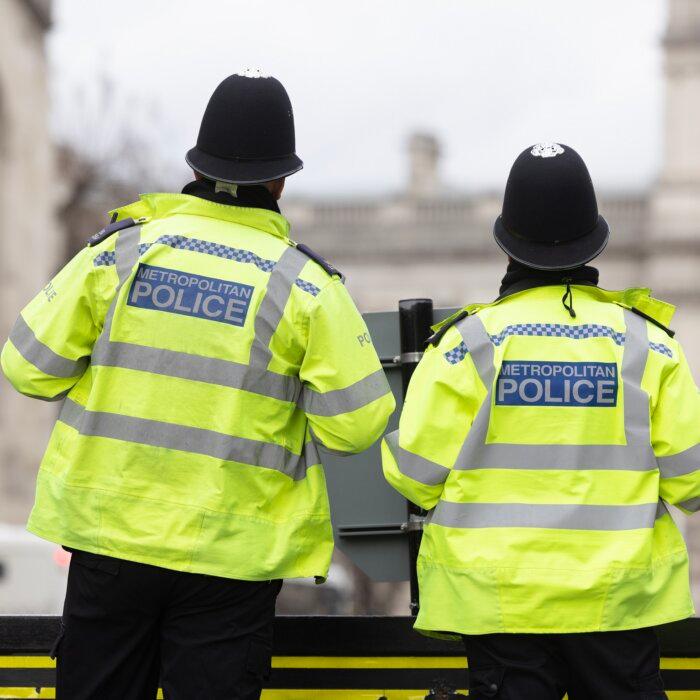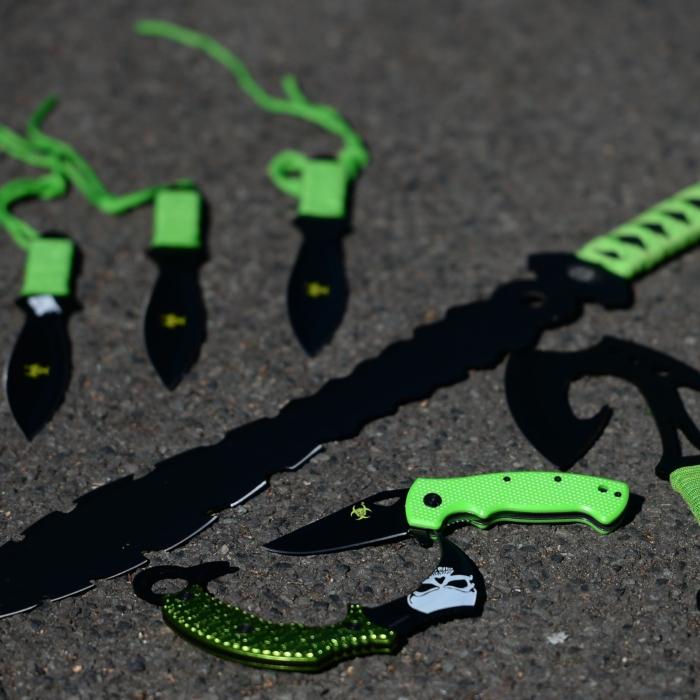The ban on zombie-style knives and machetes has come into force, following a four-week scheme, which called on owners to safely dispose of these weapons.
Zombie-style knives and machetes have been added to the list of already banned items, such as butterfly knives, Samurai swords and push daggers.
The ban comes into effect on Monday under new legislation that makes it an imprisonable offence to own, make, transport or sell a wide range of what are called “statement” knives.
A zombie-style knife is a bladed weapon over 8 inches long and has either more than one hole or more than two sharp points in the blade, spikes, or a serrated cutting edge over 2 inches long.
Policing Minister Diana Johnson announced the ban in August as part of the government’s plan to halve knife crime within 10 years.
“Too many people have access to weapons that can lead to devastating, life-changing consequences. There is no legitimate need for a weapon of this kind to be in our homes or on our streets,” Johnson said.
In a crackdown on knife crime, the Home Office also announced plans to make ninja swords illegal.
Compensation Scheme
Owners of prohibited offensive weapons have been encouraged to surrender zombie-style knives and zombie-style machetes. The compensation scheme ran from between Aug. 26 August and Sept. 23, and allowed individuals to dispose of the weapons anonymously.The government said it was “absolutely crucial” for individuals to participate in the scheme and “do the right thing” to make UK streets safer.
Designated police stations, councils and anti-knife crime charities participated in the scheme, which offered a standard compensation of £10 per item.
Chief Inspector James Kitchen at West Yorkshire Police clarified that if any surrendered weapons were linked to crime, the police will fully investigate and take action.
Knife Crime Reduction
Official figures show that knife crime, recorded by the police in the year to March 2024, increased by 4 percent, compared with the year before. The number of robberies involving a knife or sharp instrument was also on the rise, with police recording a “notable” 13 percent increase.The CEO of the Ben Kinsella Trust, Patrick Green, said the ban represented a “significant step forward” in tackling knife crime. He commended the families of knife crime victims and the National Police Chiefs Council (NPCC) for their “collective hard work” resulting in the enforcement of the ban.
The NPCC also proposed to increase the maximum penalty for manufacturing and selling knives and dangerous weapons to people under 18 to 2 years. Another recommendation was to give police the power to seize, retain and destroy lawfully held bladed articles in private premises, if there is reasonable grounds to believe that these weapons will be used in serious crime or serious violence.
“Every day as police officers we see first-hand the devastating effects of these deadly weapons on the lives of individuals, particularly young people and we must always look at what action can be taken to prevent access to knives that are used for violence, intimidation and harm,” said NPCC knife crime lead, Commander Stephen Clayman.
Anti-knife campaigner Faron Paul, who collaborated with actor Idris Elba on a campaign called “Don’t Stop Your Future,” said that the government policy will facilitate knife-crime reduction.
After being stabbed multiple times, Paul founded an organisation called FazAmnesty, which helps young people hand in their knives with no questions asked. He worked with Elba, local communities and well-known brands to tackle serious violence.







